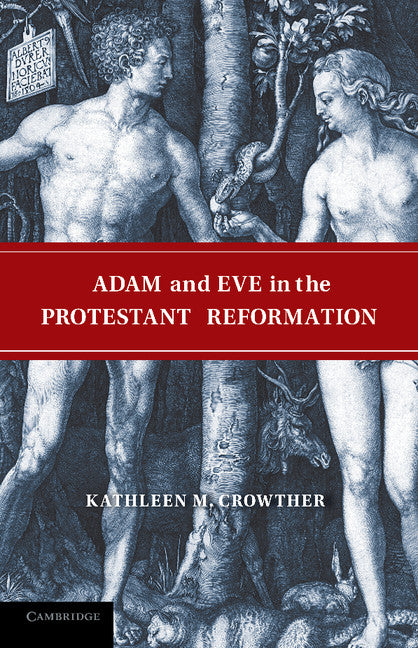Freshly Printed - allow 8 days lead
Couldn't load pickup availability
Adam and Eve in the Protestant Reformation
Explores the importance of stories about Adam and Eve in sixteenth-century German Lutheran areas.
Kathleen M. Crowther (Author)
9781107612716, Cambridge University Press
Paperback / softback, published 11 July 2013
306 pages, 15 b/w illus.
22.9 x 15.2 x 1.8 cm, 0.45 kg
'In her book, [Kathleen Crowther] provides an insightful portrait of both the theological novelties and the historical perceptions which grew out of the Lutherean Reformation. Awarded the Gerald Strauss prize by the Sixteenth Century Studies Conference, Reformation theologains and early modern historians will recognise the theme of this book, but the general populace will find the topic intriguing and genuinely enlightening as explored by Crowther in this extensive and well-illustrated investigation.' Timothy Maschke, Concordia Theological Journal
The story of Adam and Eve, ubiquitous in the art and literature of the period, played a central role in the religious controversies of sixteenth-century Europe. This is the first book to explore stories about Adam and Eve in German Lutheran areas and to analyze their place in Lutheran culture and identity. Kathleen Crowther examines Lutheran versions of the story of Adam and Eve in bibles, commentaries, devotional tracts, sermons, plays, poems, medical and natural history texts, and woodcut images. Her research identifies how Lutheran storytellers differentiated their unique versions of the story from those of their medieval predecessors and their Catholic and Calvinist contemporaries. She also explores the appeal of the story of Adam and Eve to Lutherans as a means to define, defend and disseminate their distinctive views on human nature, original sin, salvation, marriage, family, gender relations and social order.
Introduction
1. Adam and Eve in the Reformation
2. In His image and likeness
3. Framing Eve
4. Gender and generation
5. The book of nature
6. The children of Adam and Eve
Conclusion.
Subject Areas: New Testaments [HRCF2], Early modern history: c 1450/1500 to c 1700 [HBLH], European history [HBJD]


